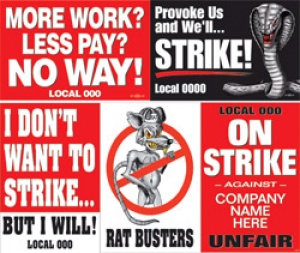Rail strikes: both sides are to blame this time

Passengers struggling to get into work today on National Express services will no doubt be wishing that, rather than face the prospect of two days of strikes by rail unions, they had gone on holiday - though not, perhaps, from Stansted Airport, now that the Stansted Express has been reduced to an hourly service.
Handily for the strikers, the 48-hour stoppage on services to and from Liverpool Street falls today and tomorrow, just before the weekend. Two more stoppages are planned for holiday weekends on 13-14 August and 20-21 August.
But although passenger indignation may well be focused on the unions, this would not be altogether fair. Blame can be shared by both sides. National Express has shown itself to be inept in its relations with its employees as well as its customers.
But the unions, who are are vexed at the operator’s offer of a 0.5 per cent pay rise this year, have to realise that workers in other parts of the economy are taking pay cuts in order to hold onto their jobs. The economic climate does not favour generous pay rises.
The unions are more justifiably concerned that the company has cut 750 jobs on two of its services, the East Coast mainline and the East Anglia service. That includes a customer call centre and ticket office staff; the management has also removed dining cars from long-distance routes. These cuts have had a damaging effect on customers as well as staff, an insult added to the injury that ticket costs rose by six per cent in January.
ADVERTISEMENT
Undoubtedly, the company has financial difficulties in respect of the East Coast line, and that can be attributable to the inflated price it paid to the Government to renew its franchise. In other words, it would appear that passengers are paying the price for the incompetence of National Express management.
The strike is unjustified, because its consequences will fall on blameless travellers: both the rail company and the unions must avert the next one as a matter of urgency.
Source: London Evening Standard

